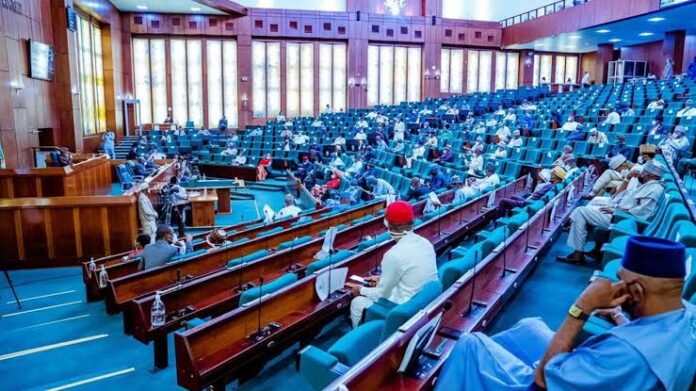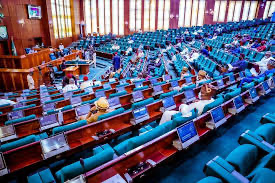
The House of Representatives has called on the Federal Government and the Nigerian Army to promptly reopen Banex Plaza in Abuja. This directive comes in response to the military’s closure of the plaza following an incident where soldiers were attacked by civilians on Saturday, May 18, 2024.
In addressing the issue, the House of Representatives drew a comparison to the military’s previous reprisal attacks in the Okuama community, condemning what it described as an excessive and heavy-handed approach in dealing with civil matters. The motion for reopening Banex Plaza was introduced by Honourable Sesi Winghan, who criticized the deployment of military personnel in handling disputes that could have been managed through civilian channels.
Providing further context on the closure, Major General Onyema Nwachukwu, the spokesperson for the Nigerian Army, issued a statement on Tuesday. He explained that the plaza was shut down following the incident as part of an investigation into the “cruel treatment” inflicted upon “unarmed soldiers” by certain individuals at the plaza. Major General Nwachukwu emphasized that the attack on the soldiers was “entirely unwarranted and unjustifiable.”
 The Army’s decision to close Banex Plaza was also influenced by a meeting with the plaza’s management. The objective of this meeting was to identify and apprehend those responsible for the attack, which the Army described as a heinous act. The temporary closure of the plaza was deemed necessary to aprehend those using the Banex area as a haven for criminal activities, thereby posing a security threat to the Federal Capital Territory.
The Army’s decision to close Banex Plaza was also influenced by a meeting with the plaza’s management. The objective of this meeting was to identify and apprehend those responsible for the attack, which the Army described as a heinous act. The temporary closure of the plaza was deemed necessary to aprehend those using the Banex area as a haven for criminal activities, thereby posing a security threat to the Federal Capital Territory.
Major General Nwachukwu stressed that this measure was part of a broader effort to conduct an extensive investigation at the scene. The aim of the investigation is to uncover both the immediate and underlying causes of the incident. This process, according to the Army, is crucial for ensuring the security of the Federal Capital Territory and preventing similar unwarranted attacks on military and other security personnel, drawing parallels to the attack in Okuama.
The Army condemned the attack on its personnel and called on the public to exercise caution and restraint in their interactions with military and other security operatives. Additionally, the Army urged Nigerians to use official channels to report any grievances or misconduct by its personnel, emphasizing the importance of maintaining a respectful and lawful relationship between civilians and the military.
In conclusion, the House of Representatives and the Nigerian Army appear to be at odds over the appropriate response to the incident at Banex Plaza. While the House advocates for a swift reopening of the plaza and a more measured approach to such incidents, the Army remains focused on ensuring thorough investigations and maintaining security. As this situation unfolds, it underscores the ongoing challenges in balancing security concerns with the rights and activities of civilians in Nigeria.



